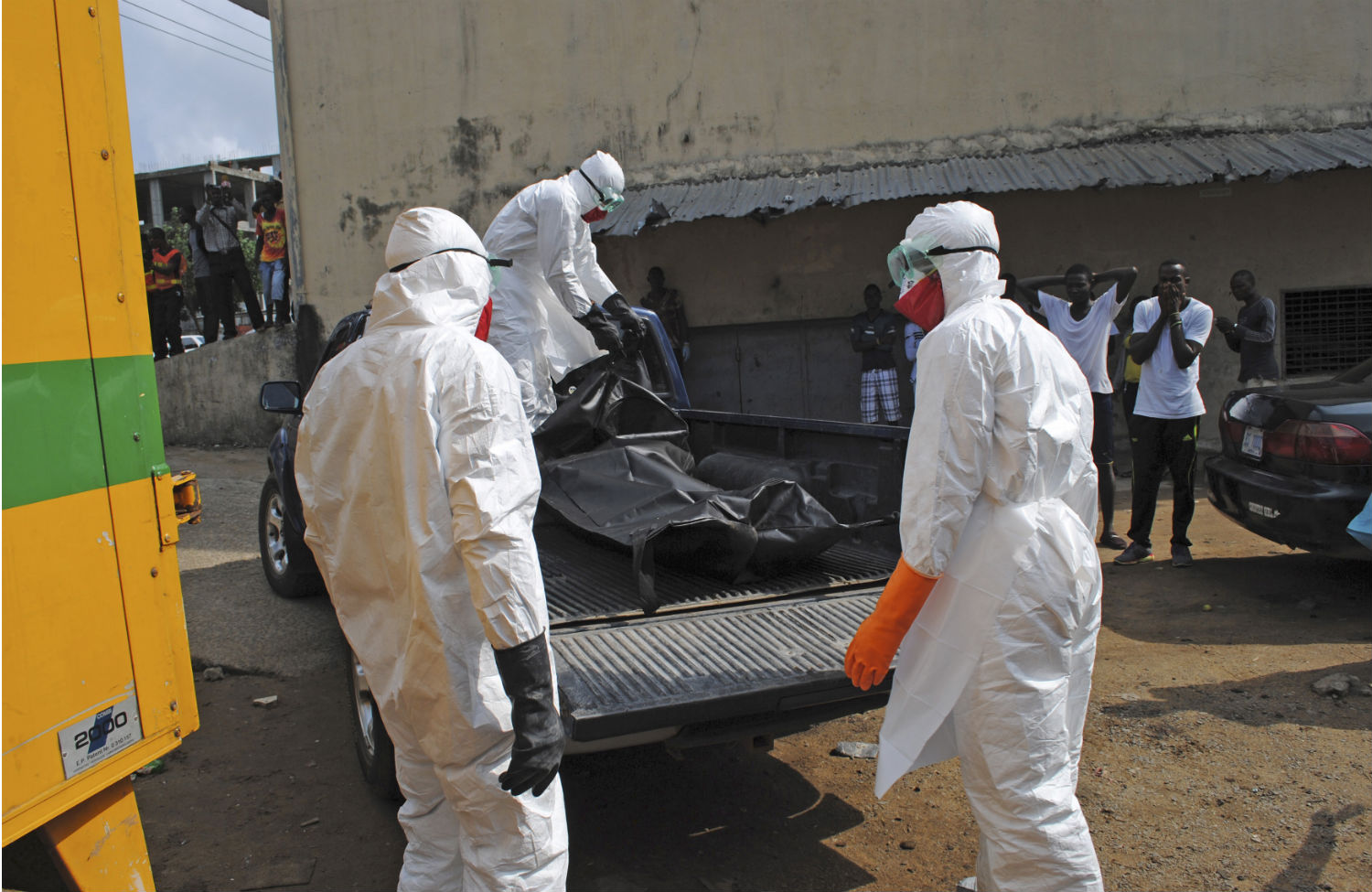
How Can You Tell If US Hospitals Are Prepared for Ebola? Ask a Nurse. How Can You Tell If US Hospitals Are Prepared for Ebola? Ask a Nurse.
This is not a time to panic. It is a time to get things right.
Oct 13, 2014 / John Nichols
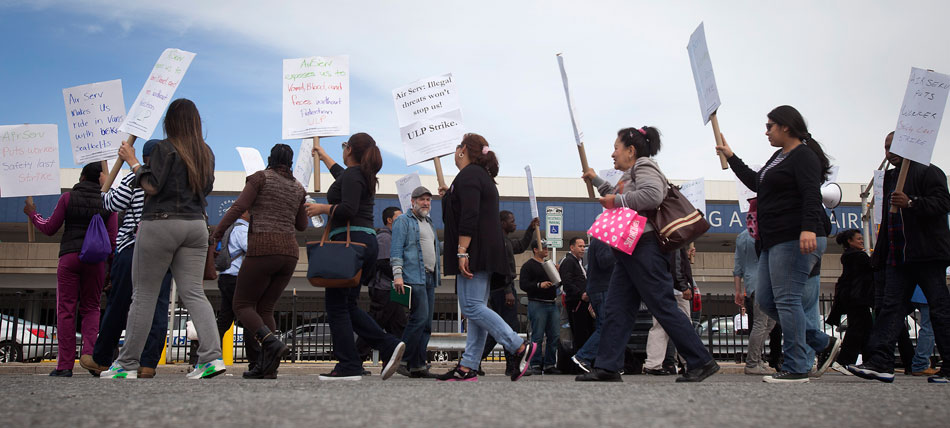
If Airport Ebola Screening Makes You Feel Safer, You Should Know What Workers Are Saying If Airport Ebola Screening Makes You Feel Safer, You Should Know What Workers Are Saying
Some airport workers have not been trained on handling exposures which could put them at risk of Ebola, hepatitis B and HIV infection.
Oct 12, 2014 / Michelle Chen

Supreme Court Case Shows How Amazon Legally Cheats Workers Supreme Court Case Shows How Amazon Legally Cheats Workers
Amazon’s relentless cost-cutting hits workers hardest.
Oct 10, 2014 / Michelle Chen

What Lena Dunham Taught Us About Unpaid Labor—and What We Taught Ourselves What Lena Dunham Taught Us About Unpaid Labor—and What We Taught Ourselves
Millennial icon Lena Dunham’s relationship to unpaid labour is explored, contextualized and reframed by youth activists and media workers.
Oct 9, 2014 / StudentNation / StudentNation and Isabelle Nastasia
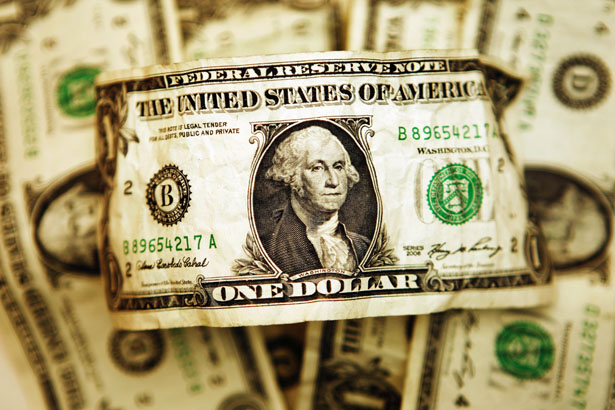
The Score: Does the Minimum Wage Kill Jobs? The Score: Does the Minimum Wage Kill Jobs?
Throw a rock into the punditsphere and you’ll hit someone arguing that minimum-wage increases kill jobs. We shouldn’t boost the wage, these people argue, because companies will hire fewer of the lowest-paid workers—the very workers who are supposed to be helped. Meanwhile, social movements like Fight for 15 demand a higher minimum wage in order to raise the living standards of these workers. To a degree, the relationship between the minimum wage and employment is still debated among economists. When thirty-eight of them were polled last year, they were split as to whether a $9 hourly wage would cost jobs, with about a quarter unable to say one way or another. The debate pits the Congressional Budget Office, which found that a $10.10 wage would reduce employment by 0.3 percent, against economists like David Cooper, who found that a higher minimum wage would support the creation of 85,000 new jobs. So which is it: Does raising the minimum wage boost living standards for workers, or does it kill jobs for those who need them most? Taking stock of all the conflicting research on the topic suggests the former: employment is unlikely to suffer from a higher wage. In 2009, Hristos Doucouliagos and T.D. Stanley published a paper that reviewed sixty-four studies and found that when the studies’ findings were averaged out, the impact of raising the minimum wage on employment was close to zero. Also, the most statistically precise studies were the likeliest to find no impact. Increasing the wage by 10 percent could reduce employment by a mere 0.1 percent. Critics suggest that employers of low-income workers will replace them with machines if their labor becomes more costly. But in the real world, businesses are run by human beings who make a range of choices. Bosses often respond to higher labor costs not by cutting workers, but by requiring workers to be more efficient. They may reduce bonuses for higher-paid employees. They could pass the cost on to customers through higher prices, although a review of academic papers found that a 10 percent wage increase raised prices by no more than 0.4 percent. Most important, employers are likely to find that a higher wage reduces costly job turnover among trained workers. Higher wages also put more money into workers’ pockets—to the tune of some $30 billion—which would then be spent at these businesses. Real-world evidence is reassuring. In 2010, three economists looked at 1,381 counties over sixteen years, finding that minimum-wage hikes had no effect on employment. Other economists looked at every state-level minimum-wage increase over twenty-five years at times when unemployment was already high and found no evidence of an effect on job creation. Yet another group looked at the effect of state-level increases on teenagers—canaries in the coal mine of low-skilled employment—and found zero impact on their jobs. Even this year, the thirteen states that raised their minimum wages on January 1 have experienced higher employment growth than those that didn’t. Washington, the state that has boasted the highest minimum wage for fifteen years, had a job-growth rate 0.3 percentage points above the national rate. It’s impossible to draw a clear line of causation from a higher minimum wage to job growth, but the hikes clearly did not torpedo local economies. Across the board, there’s little reason to think that a higher wage would decimate job growth and good reason to think it could give the economy—and workers—a boost. Bryce Covert Myth: The minimum wage is a living wage. Reality: One full-time minimum-wage job used to be able to keep a family of three above the poverty line. Now it can’t keep a single parent above the poverty line. Myth: Mostly teenagers in short-term jobs make the minimum wage. Reality: Nearly 90 percent of the workers who would be affected by a minimum-wage hike are older than 20, and 28 percent of them are parents. Myth: Minimum-wage jobs like fast food are just entry points to better-paid careers. Reality: In the minimum-wage fast-food industry, there are far fewer managerial positions to move into than in other industries, and few franchise ownership opportunities. half-full: Ten states have passed minimum-wage increases this year, five above $10 an hour. half-empty: Congressional Republicans have blocked a federal minimum-wage increase three times over the past three years despite supporting one under President George W. Bush.
Oct 8, 2014 / Mike Konczal and Bryce Covert

Trumka Wants a More Populist Approach From Democrats Trumka Wants a More Populist Approach From Democrats
Talking directly about economic fairness will increase Democratic turnout, the labor leader says.
Oct 7, 2014 / George Zornick
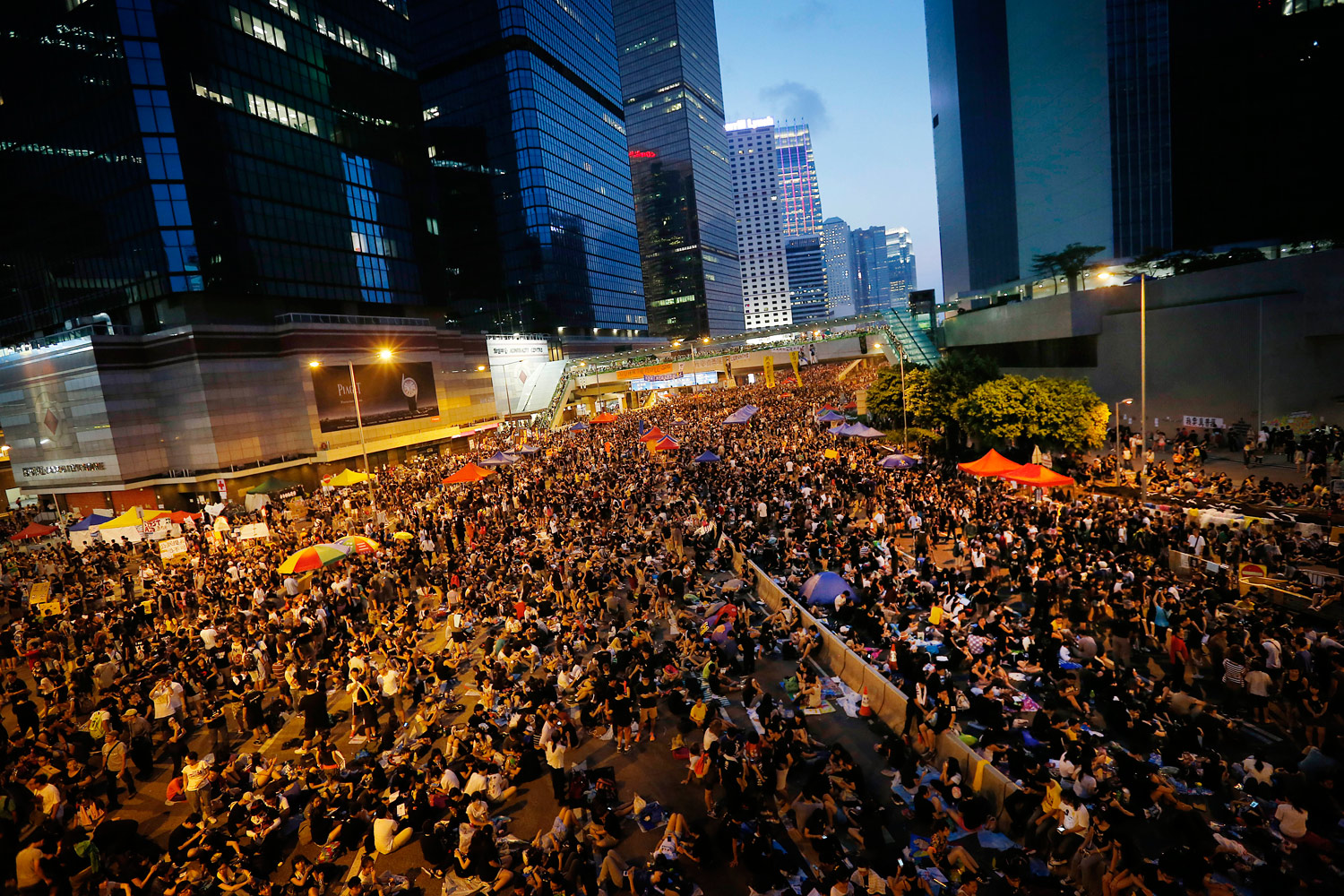
10,000 Workers Strike in Support of Hong Kong’s Protests 10,000 Workers Strike in Support of Hong Kong’s Protests
Can the protests go beyond calls for greater electoral transparency, to embrace a truly social democratic agenda?
Oct 1, 2014 / Michelle Chen
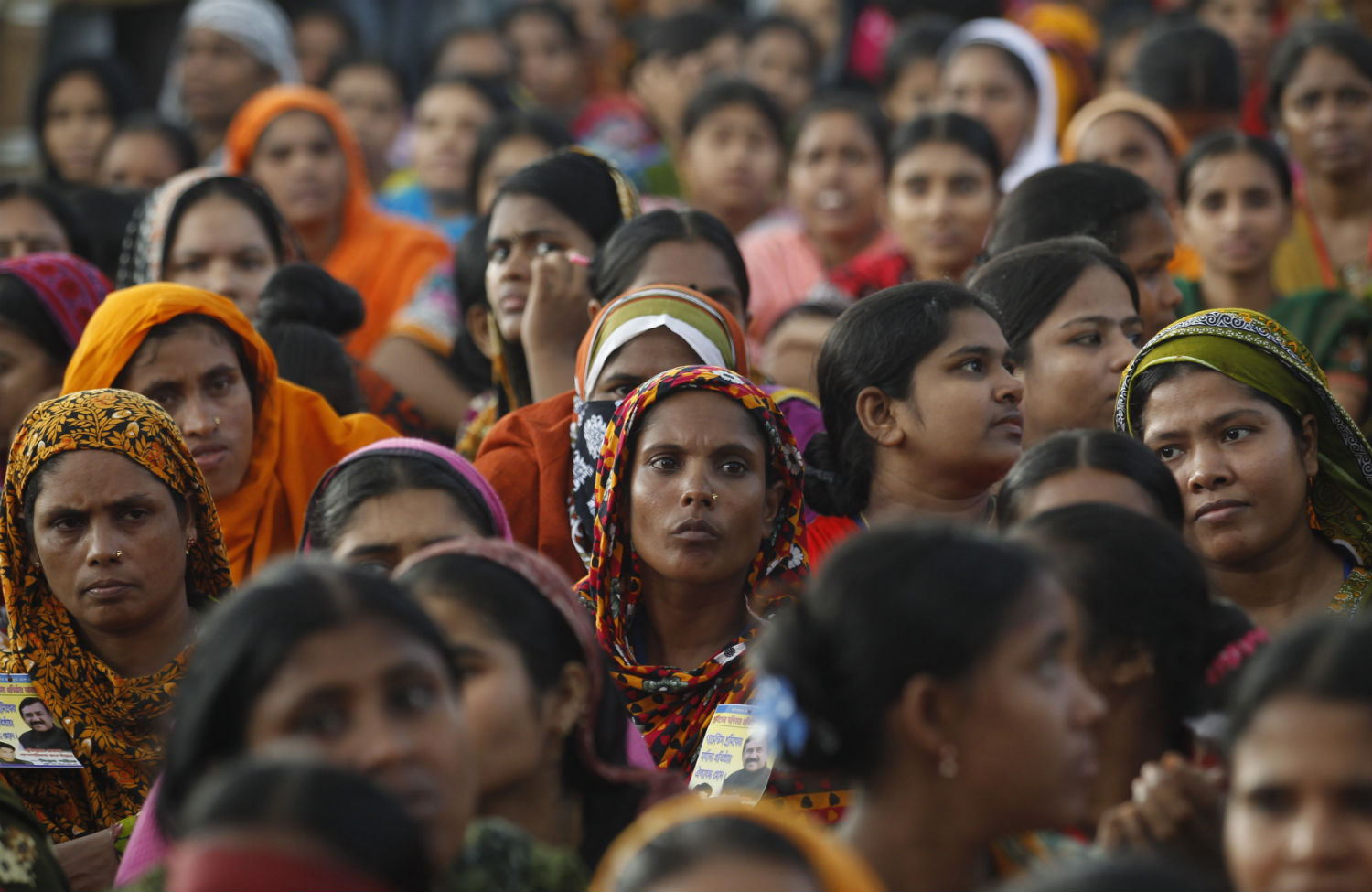
Bangladeshi Workers Organize to Protect Their Most Valuable Export: Themselves Bangladeshi Workers Organize to Protect Their Most Valuable Export: Themselves
Migrant domestic workers from Bangladesh enjoy little protection from their government, but they’re not alone.
Oct 1, 2014 / Tiffany Williams and Foreign Policy In Focus
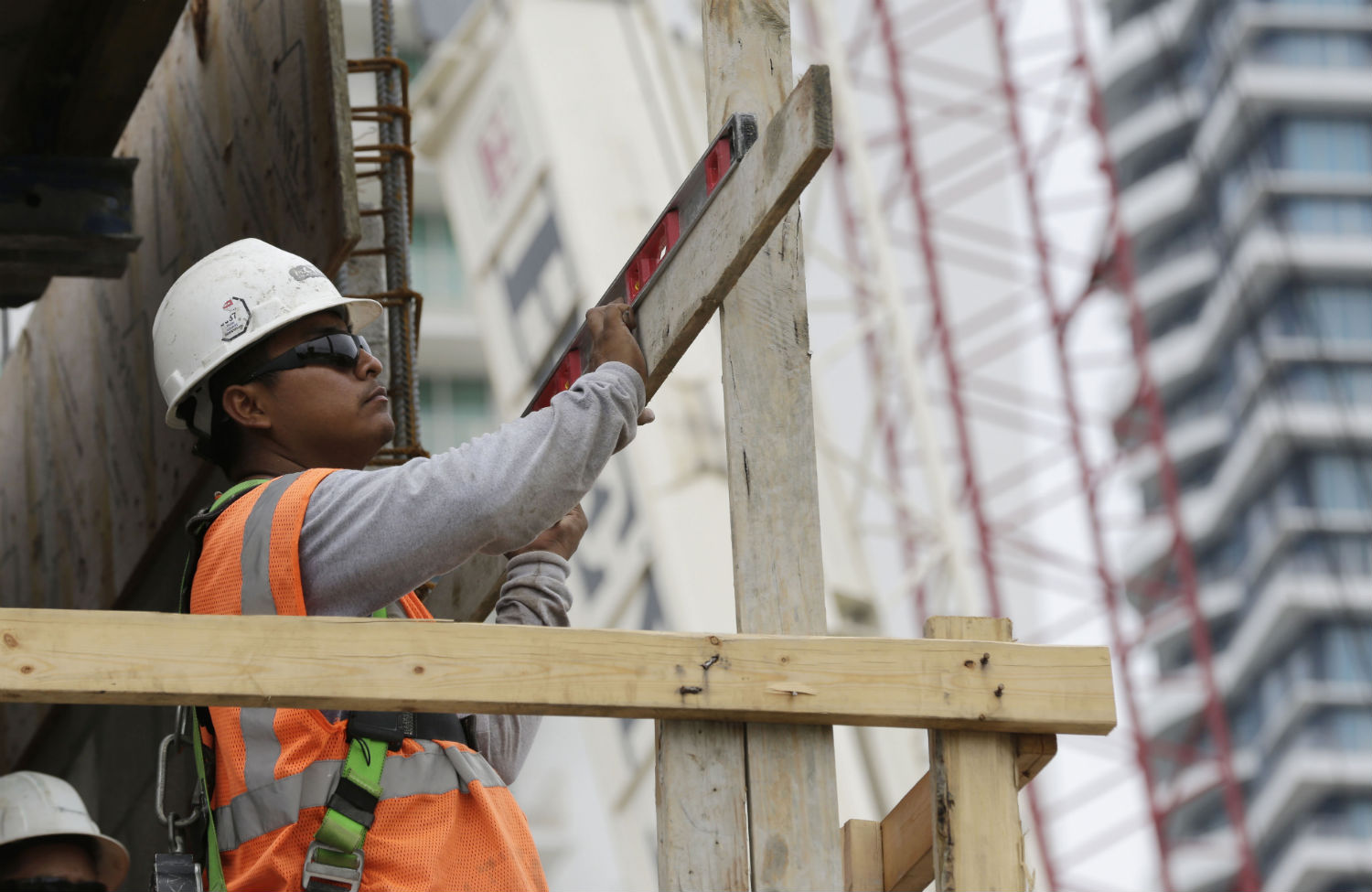
Federal Affirmative Action Guidelines for Construction Haven’t Been Updated in 30 Years Federal Affirmative Action Guidelines for Construction Haven’t Been Updated in 30 Years
Why are we setting diversity goals based on the 1980 census?
Oct 1, 2014 / Michelle Chen
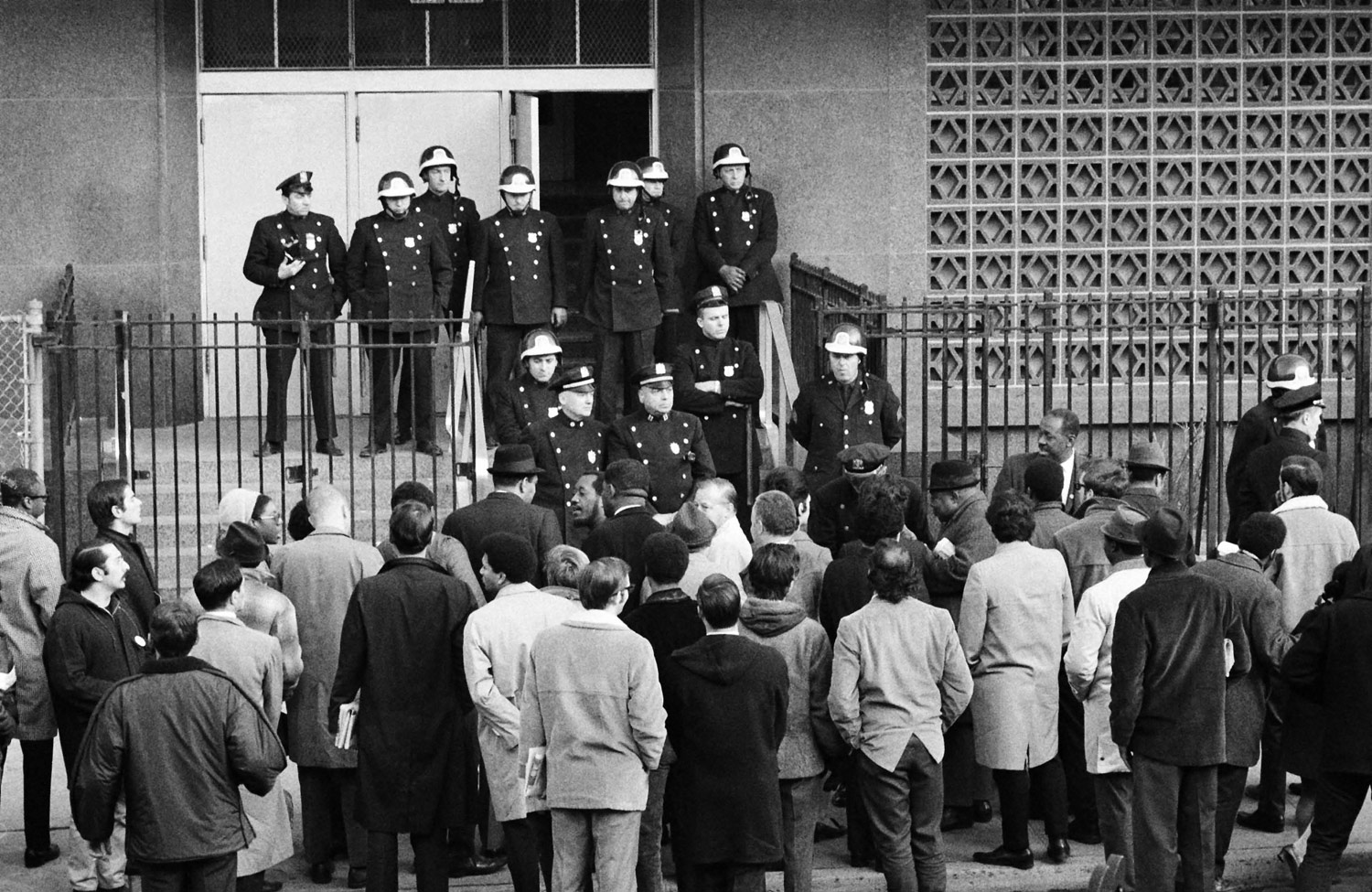
The Tough Lessons of the 1968 Teacher Strikes The Tough Lessons of the 1968 Teacher Strikes
To building a lasting peace between teachers unions and communities of color, we can’t forget their most painful battle of all.
Sep 24, 2014 / Dana Goldstein
